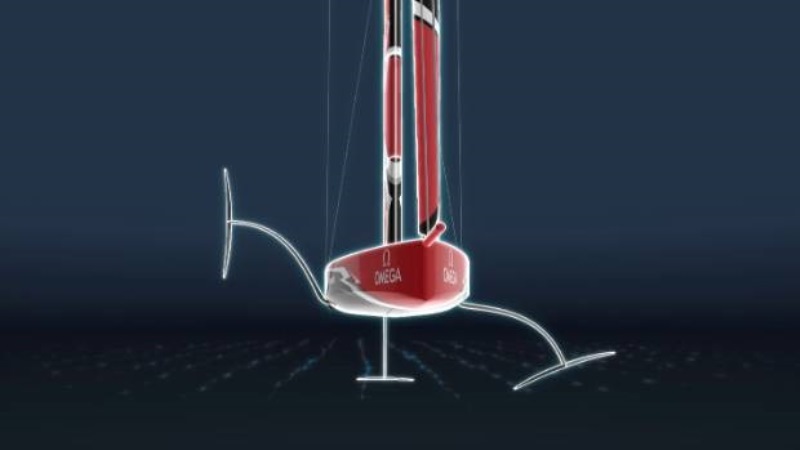
The yachts competing for the next America’s Cup will be bigger, faster, single-hulled giants that fly over the water on foils, like the catamarans seen in recent regattas, Team New Zealand (TNZ) said Tuesday.
The New Zealanders, who won the Auld Mug from Team USA in Bermuda in June, get to dictate rules for the next America’s Cup in Auckland in March 2021.
As expected, TNZ’s design vision released Tuesday opted for a return to traditional monohulls, rather than the catamarans used in the past two editions.
But, crucially, the hi-tech monohulls retain the ability to “foil” — using movable, carbon-fibre wings which fold down to lift the boat’s hull from the water when racing.
Foiling makes the boat look like it is flying and dramatically increases speed, providing spectacular visuals that boosted interest in the 2013 and 2017 regattas.
The feature has never been used previously on America’s Cup monohulls.
“It’s a completely new concept of boat which we’re pretty excited about,” TNZ design chief Dan Bernasconi told Radio New Zealand.
“A complete change from the cats (catamarans) that we raced in Bermuda but I think it’s going to be pretty cool.”
The 2021 yachts, called AC75s, are also 75 feet (23 metres) long, much bigger than the 50-foot AC50 vessels that competed in Bermuda.
TNZ chief Grant Dalton said the increased size did not mean they would be slower.
“Our analysis of the performance of the foiling monohulls tells us that once the boat is up and foiling, the boat has the potential to be faster than an AC50 both upwind and downwind,” he said.
TNZ will release detailed specifications for the AC75s in March next year, which rival syndicates can use to build their challengers.
Bernasconi said he expected the first versions of the vessel to be launched around April 2019, giving plenty of practice time before sailing’s most prestigious trophy is up for grabs in 2021.
TNZ has previously announced it will tighten the nationality criteria for yacht crews, and attempt to keep costs down to maximise the number of challengers. – Agence France-Presse































